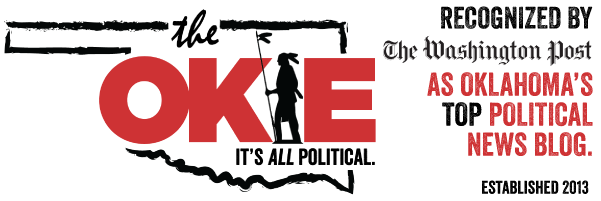OpEd: Favors for Big Pharma Could Cripple Oklahoma Hospitals
Favors for Big Pharma Could Cripple Oklahoma Hospitals
By Ronda Vuillemont-Smith
In 1992, President George H.W. Bush worked in a bipartisan fashion to craft protections for rural hospitals, like the ones that dot the Oklahoma landscape. A very significant part of the 1992 law is section 340B.
The name “340B” tells nothing of the program’s advantages or even what this section of the law covers. Section 340B provides protection for rural and other safety net hospitals. In exchange for the ability to sell medication to the cash cow Medicare and Medicaid programs pharmaceutical companies would provide these hospitals with discounted medications, granting them the ability to stretch their limited resources. Patients with insurance or the ability to pay for medication do so at standard rates negotiated by their provider. The plan with the pharmaceutical companies was to trade a slight decline in profit margins for a huge gain in market share.
This program has been in effect for more than 25 years and many rural hospitals, running on razor-thin margins are able to keep their doors open because of 340B, providing services that might not otherwise be available to predominantly underserved communities, low-income seniors and Medicaid patients.
But now big Pharma is pushing Congress to revoke 340B, claiming losses on the program and unaccountable hospitals. Only one-third of U.S. hospitals participate in the 340B program, many in rural areas. While pharmaceutical companies are complaining about losses, in 2015 only $12 billion worth of drugs, or 3 percent of total pharmaceutical sales were purchased under the 340B program. Annual pharmaceutical sales overall for 2015 were $425 billion, of which Medicaid accounted for $57.3 billion and Medicare (Part D&B) spent $162 billion.
By revoking 340B these same pharmaceutical companies that have been fined billions of dollars for overcharging the government will yank the rug out from under the most vulnerable in the areas that need care the most. And yet these same pharmaceutical companies claiming big losses on discounted drugs charge $84,000 in the United States for hepatitis C treatment and provide the same treatment in India for a mere $900.
Rising healthcare and medical costs should be the key focus on why 340B should remain in place. 340B allows rural hospitals to stay open without government subsidies. Closing many of these rural hospitals would restrict access to care in these areas, potentially shifting the responsibility to cover the $25 billion in uncompensated care 340B safety-net hospitals provide to taxpayers’ expense.
The closure of our rural and safety-net hospitals isn’t the only possible cost of losing 340B. Some rural providers have used funds from the 340B program to create programs providing free transportation to receive care. If these programs were to end due to budgetary restrictions, transporting low-income patients to these facilities would then likely fall to the government (ultimately the tax payer) Lowering medication costs through 340B for needy patients also reduces the burden on government-funded Medicaid programs. By having greater access to discounted preventative drugs it prevents more expensive catastrophic hospital visits from occurring.
A 2016 report by the Natural Rural Health Association reported that a third of rural hospitals – about 700 – are at risk of closing. Oklahoma cannot afford to lose its rural hospitals. In Markwayne Mullin’s Congressional district alone, two rural hospitals have been forced to close, now requiring travel of more than 30 miles for emergency treatment. If costs continue to rise another 41 rural Oklahoma hospitals could face closure. Our neighbors to the south of us, Texas, currently have 27 counties with zero licensed physicians. Combine the loss of patient care with the jobs impact that hospital closures would create – rural hospitals are often one of the largest employers of the communities they serve – and we are faced with a recipe for the decline of healthcare in rural Oklahoma.
No bill has been presented as yet, however Congress has held Committee hearings regarding 340B. Should big Pharma get their way and persuade Republican legislators to revoke 340B, it will be at their own peril. Rural voters were key to Donald Trump’s victory last November. Instead of revoking a program that keeps Oklahoma hospitals alive, perhaps Congress should fulfill their promise and repeal Obamacare, a big contributor to the rising cost of healthcare. Repealing 340B will only make rural access to healthcare a crisis of its own, and enrich fat cat pharmaceutical companies.
Ronda Vuillemont-Smith is President of the Tulsa 912 Project.

